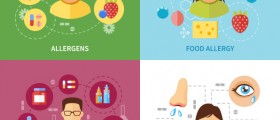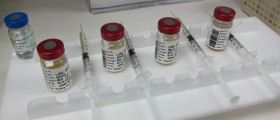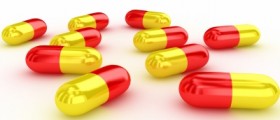
A drug allergy is an abnormal reaction to certain drugs, to be more precise to specific components of a drug. A person may be allergic only to one drug (i.e. a component of some groups of drugs) or develop allergic reaction to multiple drugs all containing different ingredients. There are many drugs capable of causing allergies.
In the majority of cases drug allergy manifests through skin rash and hives. A more severe from of drug allergy is anaphylactic shock, a life-threatening condition that leads to death if not treated immediately.
Diagnosing Drug Allergy
People who have developed signs of allergy after taking some medications are supposed to be examined regarding the reaction of the body towards the drug. Firstly, there are two reactions, nonallergic drug reaction and allergic drug reaction. The doctor will perform some tests to differentiate the two.
Patients are also asked questions about any past reaction to drug, intake of other medications and conditions a person is suffering from. Additionally, patients undergo a physical examination, blood test and several more specific tests and exams.
Drug Allergy - Skin Testing
Skin testing is a suitable tool for confirmation of allergy to antibiotics and other medications. Testing includes injection of small amounts of the drug into the skin of the forearm or the back. If allergy is present, the skin at the site of injection soon changes and becomes red with or without additional raised bumps and similar skin changes. Drug Allergy - Drug Provocation Testing
The test is specific and includes a gradual increase in doses of the offended drug. This drug is administered orally or is injected into the skin. Depending on the results, the person is confirmed either allergic or sensitive to the drug, and if there is no reaction, drug allergy is ruled out. Ruling out the allergy is good because the person can safely continue taking the drug without any need for drug replacement.Drug Allergy Treatment Options
Treatment actually includes cessation of the therapy with the drug a person is allergic to.
Minor reactions like skin rash, hives etc. improve with the assistance over-the-counter antihistamines. More severe allergic reactions require corticosteroids, potent anti-inflammatory drugs administered either orally or in a form of injections.
Anaphylactic shock is the most extreme reaction to drugs and is life-threatening, representing a medical emergency.
Finally, some patients may benefit from desensitization. Namely, the procedure includes intake of the drug patients are allergic to. But, initially, the drug is taken in a tiny dose which is gradually increased (within 1-10 days). Desensitization is always performed under medical supervision and patients need to be thoroughly monitored, sometimes even hospitalized.

















Your thoughts on this
Loading...